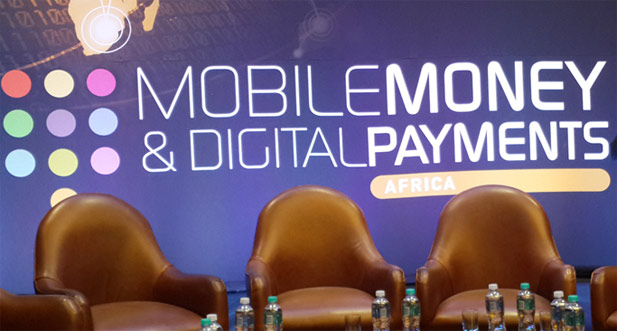Orange S.A. and Ecobank Group launched a bank-to-wallet money transfer service linked to Orange Money in Côte d’Ivoire, Guinea Conakry and Niger. The service, which has been offered in Mali since January 2015 and in Cameroun since August 2015, facilitates money transfers for both Ecobank and Orange customers by allowing them to top-up their Orange Money e-wallet from their bank account, and vice versa. Customers can use their mobile phones to securely transfer money between accounts at any time, without the need to go to a distribution point or to have any physical cash. Ecobank customers can also view bank account balance and obtain mini-statements by SMS via the service. Orange said customers will also benefit from the network of thousands of licensed Orange Money vendors in addition to Ecobank’s own high-street branches, considerably increasing the number of withdrawal points. Patrick Akinwuntan, Ecobank’s group executive for consumer banking, said the bank has seen “remarkable success in the volume of bank transfers” since the beginning of its partnership with Orange, adding that the platform highlights the importance of on-line banking and mobile today.
SimbaPay expanded its instant Africa money transfer service to France, Germany, Ireland, Italy and Spain, after a three-month pilot run in those countries. Africans living in these countries will now be able to send money back home instantly and free of charge. Money transferred via the service to Africa is credited instantly at the destination mobile money wallet, merchant or bank account. EU-based Africans who have a bank account or debit card can download the SimbaPay app from the Apple AppStore or Google Play and proceed to make money transfers straight from any mobile phone, tablet or computer. Apart from sending money direct to mobile money services such as M-Pesa, customers can also send money to bank accounts in Africa and to Pay Bill merchants such as schools and utility companies.
SimbaPay CEO Nyasinga Onyancha said the expansion in the EU follows requests by Africans in the EU and partner banks in Africa to expand the service to these new territories. He noted that it brought SimbaPay one step closer to its goal of connecting all Africans living abroad to any Mobile Money wallet or Bank Account in Africa. The company also launched free, instant transfers to all Nigerian banks in 2015 and plans to expand to another six countries by the end of March 2016.
Headquartered in London, SimbaPay was the Overall Winner at Demo Africa 2015, and was a finalist in the Best FinTech Innovation category at the annual Apps Africa Innovation awards. In June 2015 it became the first platform in the world to allow Kenyans living abroad to make M-Pesa PayBill payments and continues to disrupt the cross-border remittance industry with its focus on extreme speed and convenience.
MoneyGram and GT Bank, one of the leading retail banks in Nigeria, announced the launch of MoneyGram’s receive services across the GT Bank network. The service will be available through MoneyGram’s cash to account service. Customers in Nigeria can now receive money from friends and family in 129 countries directly into their personal GT Bank accounts within minutes. The funds can be accessed as customers would normally do on all deposits into their accounts either in person, online or through an ATM. MoneyGram CEO Alex Holmes and GT Bank general manager, operations division, Tayo Asupoto made the announcement during a signing ceremony at the Intercontinental Hotel in Lagos. Asupoto said the collaboration with MoneyGram is a reflection of GT Bank’s commitment to building strategic partnerships that birth innovative financial solutions and provide our customers with a superior banking experience.
Remittance is the second largest source of foreign exchange in Nigeria after the oil sector. According to the World Bank, Nigeria accounts for around two-thirds of total remittance inflow to sub-Saharan Africa, with Nigerians living overseas sending more than $21 billion back home in 2015 alone. Of that figure, an estimated $5.7 billion was sent from the United States, while about $3.7 billion was sent from the United Kingdom. Other key corridors include Cameroon ($2,4 billion), Italy ($1 billion), and Ghana ($0,8 billion).
Tigo Tanzania announced the addition of a nano lending product to its stable of mobile financial services. The new product will not require collateral and offers immediate access to small loans to Tigo Pesa users. Tigo Head of Mobile Financial Services, Ruan Sawnepoel, said in a statement to the press that for the first time the nano loans product, called Tigo Nivushe, will allow Tigo Pesa customers to build their own credit history and being open to any Tigo Pesa customer turns the typical lending models upside down. No security is required or taken and the loan product has been designed to be transparent and foster responsible lending. Swanepoel said Tigo Nivushe offers different lending periods with variable administrative costs based on the length of tenure. The loans, with an average of 10,000 Tanzanian shillings (US$5) – are processed in real-time and funds transferred within minutes. As customers build up their credit history they are able to borrow higher amounts with lower administration fees. Loans are delivered directly to the mobile wallet so customers can immediately use the funds to pay bills, transfer to others, or cash out at the thousands of agents across the country.
Swanepoel added that protection against life shocks is included as everyone will be automatically insured for the loan amount against death or permanent disability. Most importantly, as the product is fee based no interest can be accumulated in the event of default and acquiring a loan will not affect mobile or Tigo Pesa accounts in any way, he said. Disruptive E-money services, delivered through mobile phones have already changed the lives of millions of people. With this new responsible lending product, Tigo wants to change the way people think about lending, Swanepoel said.
According to the World Bank, Africans abroad currently send home an estimated $64 billion annually, more than double the $30 billion that the continent receives in foreign aid. Much of those remittances are made via mobile devices. Ericcsson’s Mobility Report puts total mobile subscription penetration in sub-Saharan Africa at about 80 percent currently, and projects it will reach 100 percent and 1 billion mobile subscriptions by 2021.
Source: African Press Organization













